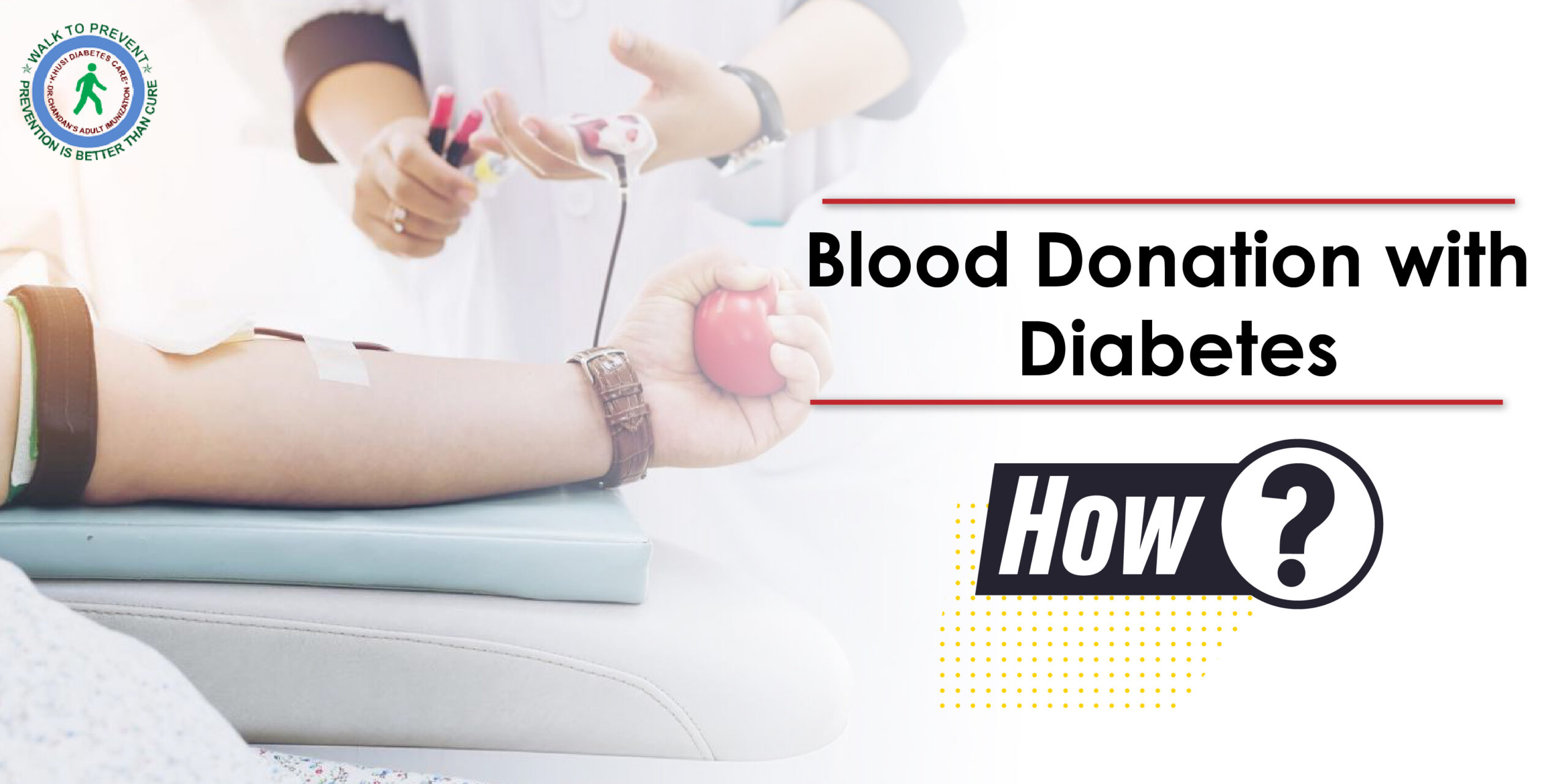Donating blood is a selfless act that can save lives and make a significant difference in the world. Many people wonder if individuals with diabetes are eligible to donate blood, considering the potential health implications. In this blog, we will explore the topic in-depth and shed light on the truth behind donating blood with diabetes. We will address the concerns, guidelines, and necessary precautions associated with blood donation for those living with diabetes provided by the best diabetes doctor in Odisha.
Understanding Diabetes and Blood Donation
Diabetes is a chronic condition characterized by high blood sugar levels. There are two main types of diabetes: type 1 and type 2. Type 1 diabetes is an autoimmune disorder where the body does not produce insulin, while type 2 diabetes occurs when the body becomes resistant to insulin or fails to produce enough.
A vital technique that helps restore the supply of blood for transfusions and other operations is blood donation. To protect both the donor’s and the recipient’s health and safety, nevertheless, is crucial. Diabetes sufferers can donate blood, but they must adhere to a few rules and safety procedures provided by the diabetes clinic Bhubaneswar.
Eligibility Criteria for Donating Blood with Diabetes
1. Stable Blood Sugar Levels: To donate blood, individuals with diabetes must have their blood sugar levels well controlled and within the target range. This ensures the safety and stability of the donor during the donation process.
2. Medication and Insulin Use: Donors should disclose their diabetes, medications, and insulin use to the blood donation facility. People who use certain drugs, such as insulin, are still eligible to donate blood. However, eligibility may vary depending on the precise medicine and amount. The best diabetes doctor in Odisha will evaluate the circumstance and offer advice as necessary.
3. Overall Health and Well-being: Apart from diabetes, donors must meet the general health criteria required for blood donation. This includes being in good physical health, meeting weight and age requirements, and having no underlying conditions or infections that might compromise the safety of the donated blood.
Precautions and Recommendations for Donors with Diabetes
1. Consultation with Healthcare Provider: Individuals with diabetes should consult their healthcare provider before donating blood. They can offer personalized advice, taking into account the donor’s specific health conditions, medications, and overall well-being.
2. Timing of Donation: It is important to time blood donation properly, ensuring that it does not interfere with regular meal plans and medication schedules. Donors should aim to have stable blood sugar levels during and after the donation process. Consult a diabetes clinic Bhubaneswar before and after the donation.
3. Adequate Hydration and Nutrition: Staying hydrated and consuming a balanced meal before donating blood is crucial for everyone, including individuals with diabetes. It helps maintain stable blood sugar levels and minimizes the risk of dizziness or lightheadedness during and after donation.
4. Blood Glucose Monitoring: Diabetes sufferers who donate blood should check their blood sugar levels both before and after. This makes it possible to make sure that any potential adjustments are made right away and that the donor’s welfare is protected.
5. Post-Donation Care: Individuals with diabetes should monitor their blood sugar levels more closely after giving blood. It is crucial to watch for any temporary changes in glucose regulation brought on by the donation process and to modify medicine or insulin dosages in consultation with the best diabetes doctor in Odisha.
People Not Eligible To Donate Blood
Now that we’ve laid out who can donate blood, here’s a straightforward listicle stating circumstances where people should not go for blood donation.
- Suffered from heart failure
- Have a faintish or giddy feeling
- Wounds or ulcers relating to the loss of sensation
- Under observation or treatment, or follow-up after renal impairment
- Require insulin treatment regularly
- Required insulin treatment within the last 4 weeks
- Undergone an amputation or blood vessel surgery
Conclusion
Blood donation is a deed of kindness and responsibility that can make a positive difference in other people’s lives. Diabetes sufferers can give blood as long as they meet the requirements and take the appropriate measures. People with diabetes can safely partake in this admirable endeavor by keeping stable blood sugar levels, consulting healthcare professionals, and according to the necessary guidelines of diabetes clinic Bhubaneswar.
Call To Action
Khusi Diabetes Care is headed by Dr.Chandan Kumar Patra, the best diabetes doctor in Odisha. Remember, if you have diabetes and wish to donate blood, it is crucial to communicate openly. Why don’t you visit us at Khusi Diabetes Care, and we’ll see where you are at with regard to blood donation? We provide complete diabetic care treatment. So far, our work has led to effective diabetic management in the needy people of Odisha. Book an appointment with us to get started with your treatment. Write to us at kdc27odisha@gmail.com or call us at 9937445445.

